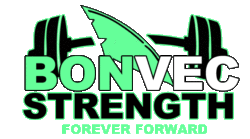Here’s a preview of one of the sections in my newest e-book, Seek and Destroy: A Powerlifter’s Guide to Identifying Weak Points and Improving Technique. It’s available for free to my mailing list subscribers, so sign up here to download your copy (and get free training content delivered straight to your inbox every week).
If you’ve read any of my blogs before, you’re likely familiar with the concept of using supplementary lifts to improve the competition squat, bench press and deadlift. That is, using a subtle variation that emphasizes a certain aspect of your technique that you want to improve. For example:
- High bar squats to increase upper back strength
- Close grip bench press to improve lockout strength
- Deficit deadlifts to improve leg drive off the floor
In recent years, I’ve gotten away from the idea of hammering away at the very specific competition lifts with the goal of every rep being picture perfect. That’s a pipe dream. It’s not going to happen. Nor is it even that useful, knowing what we know about motor learning and skill development. Being surrounded by some forward-thinking coaches in the sports performance world has helped shape my views and understanding on this.
In turn, we’ve had more success “feeding the mistake” and not only accepting but encouraging about a 20 percent “bad rep” quota on our supplemental lifts (or “working warmups” as they’re titled in many of your programs). If about 1 out of every 5 reps results in technical error, we’ve probably:
- Picked the right variation for you because it’s emphasizing a weak point/technical inadequacy
- Put the right load on the bar (anyone can make extremely light loads look pretty) because ultimately, we want our technique to hold up during 1-rep max attempts
- Given you enough opportunities to build technical awareness and self-correct (no bad reps = no learning opportunities)
And remember, while we’re striving for perfect technique, when it comes time to lift the bar on the platform, you’ve just gotta lift the damn thing. If your technique falls within the rules of the sport and is reasonably safe so we’re not putting you at unnecessary risk for injury, then we’re good. Nobody’s going to take away your 1st place medal or erase your spot on the record board because your technique wasn’t “perfect”.
Long story short, don’t get discouraged if all your reps aren’t perfect. In fact, as your coach, I’d be discouraged if all your reps looked perfect all the time. That means I’m not doing MY job by challenging you with the right exercises and loads on the bar. So perhaps “perfect practice makes perfect” could be rephrased to “challenging practice makes good enough when it counts.”

